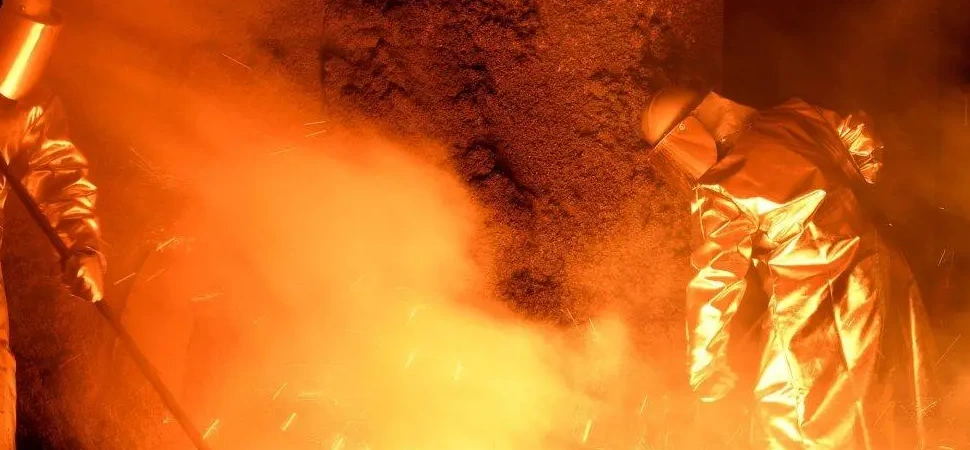In order to make the energy transition and achieve its goals in the fight against global warming, the European Union will have to import huge quantities of metals, especially non-ferrous metals. This is a paradoxical situation, the implications of which have been studied by the Catholic University of Louvain, whose report of more than 100 pages is alarming: EU countries have only two years to agree on a clear and coherent strategy to secure the supply of strategic metals. After that, there is a real risk of missing out on both energy security and environmental transformation.
The European Union is going into alert mode
Due to the urgent need for an environmental transition, the European Union is moving into alert mode. At the heart of this model shift are two critical components that we now know are fully interconnected: climate goals that require decarbonization of the economy and energy security.
According to the Catholic University of Louvain, the EU-27 has only two years to agree on a clear and coherent strategy. In a report of more than 100 pages, the think tank details the challenges of organizing projects to secure the supply of strategic metals - a vital part of the ecological transition.
European needs assessment
In order to diagnose the problem in such a short timeframe, which amounts to declaring a true state of emergency, researchers from the University of Belgium conducted an unprecedented quantitative assessment of European needs. The work, based on a study of the continent's industrial plans and commissioned by Eurométaux, shows that to replace hydrocarbons and achieve carbon neutrality by 2050, the EU must have available the vast quantities of base metals needed to produce the equipment of the future.
Researchers hypothesize
However, the researchers suggest that a significant proportion (40 to 75%) of these huge needs could be met by recycling by 2050. Metals can be reused, unlike fossil fuels. But this recycling strategy will only be possible if Europe invests heavily in infrastructure, raises mandatory recycling standards and removes future bottlenecks.
Today, between 40% and 55% of the aluminum, copper and zinc used in Europe already comes from recycling. And by 2050, locally recycled metals could be used in three quarters of the batteries used in European-made cars and in all magnets used in renewable energy.
Strategic metals
Europe is betting on recycling and a revitalized mining sector to power the energy transition. But the path to self-sufficiency may not be easy for the European Union, which "faces a critical shortage of the metals needed to create a decarbonized energy system over the next 15 years," the authors note. They add that "if European industries do not secure supplies (of lithium, cobalt, nickel, copper and rare earths) in the long term, they risk facing disruptions or price increases that could slow the energy transition."

Lisbeth Gregoire sounds the alarm
Lisbeth Gregoire, a researcher at KU Leuven and lead author of the report, sounds the alarm not only about the timetable, but also about the EU's inaction. "Europe urgently needs to decide how it is going to fill the primary metals supply gap," because "without a firm strategy, it risks falling into a new dependence on unsustainable suppliers."
And while the University of Louvain and Eurométaux recall the warning issued in the spring of 2021 by the International Energy Agency (IEA), which called on the world to organize itself to fight for these strategic resources, which are mostly concentrated in a small number of countries, they point to the inaction of European bodies, which a year later have not made enough progress.
"We don't see (in Europe) the broad support or the conditions that would allow the continent to create its own supply chains. And the window of opportunity for action is narrowing: projects need to be developed over the next two years to be ready by 2030."
EU dependence on imports from Russia and China
Today, the EU depends on imports of most metals, such as aluminum, nickel and copper, from Russia. China and Indonesia will dominate the boom in battery metal recycling capacity over the next ten years, emphasizes the report, which recommends that Europe forge links with socially and environmentally responsible suppliers.
Europe itself can cover between 5 and 55% of its needs in 2030, says the report, which nevertheless points to the uncertainty of many projects (local opposition, immature processes, etc.).
Despite the difficulties, Europe should also open refineries, as the current energy crisis and soaring electricity prices have already led to the temporary closure of almost half of Europe's aluminum and zinc refining capacity.




Comments